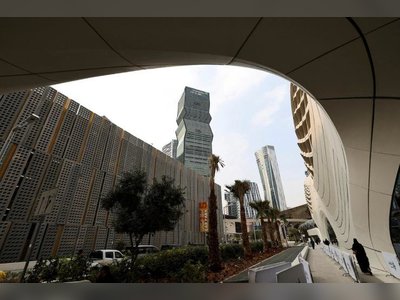Israel Intensifies Gaza Operations Amid Stalled Ceasefire Negotiations
Escalation comes as Israel shifts military focus to Gaza, raising tensions and humanitarian concerns.
In a significant escalation of its military campaign, Israel has announced plans to intensify its operations in the Gaza Strip following the collapse of ceasefire negotiations.
The ongoing conflict has already resulted in the death of at least 34 Palestinians as Israeli forces target multiple areas across the region.
Chief of Staff of the Israeli Defense Forces, Herzi Halevi, has instructed the bolstering of military presence in Gaza to broaden the offensive, shifting focus from other fronts.
According to sources cited by Walla, an Israeli news outlet, units including armored and engineering divisions have been mobilized for deployment in Gaza.
This strategic move aims to increase pressure on Hamas, the ruling militant group in the territory.
The Southern Command of the Israeli military is already conducting air operations in preparation for expanded ground campaigns.
Currently, three divisions are active in different sectors of Gaza: the 162nd Division in the north, the 99th Division in the Nitzarim corridor, and the dedicated Gaza Division in the south along the Philadelphi Route, bordering Egypt.
After reallocating resources to the northern frontier for a potential large-scale confrontation with Hezbollah in Lebanon last September, and amid the geopolitical shift following the collapse of Syrian President Bashar al-Assad’s regime, Israel sees an opportunity to redirect focus onto the ongoing conflict in Gaza.
The Israeli military has maintained operations without respite, launching intensive strikes in Beit Hanoun, weeks after conducting a destructive assault on the adjacent Jabalia camp in the northern Gaza Strip.
These efforts culminated in a substantial operation around the Kamal Adwan Hospital, concluding on Saturday.
Israeli forces announced on Sunday that the hospital would not be allowed to reopen, citing security concerns.
During the controversial operation at Kamal Adwan Hospital, approximately 240 individuals, including the medical center's director Hassam Abu Safia and 15 militants allegedly involved in an attack against southern Israel in October, were detained.
The military claims the hospital was repurposed as a strategic hideout for militants, justifying the need for action.
With northern Gaza effectively severed from Gaza City due to current military actions, the Israeli Defense Forces are concentrating efforts on Beit Hanoun.
The area has experienced intense shelling, hindering humanitarian aid and access to basic needs for civilians, including handling deceased civilians' bodies.
The assault raises questions about the implementation of the so-called 'Generals’ Plan,' reportedly drafted by retired senior military officials led by former National Security Council head Giora Eiland.
The controversial strategy suggests eradicating Hamas from northern Gaza by depopulating the region, creating a strictly enforced military zone, and denying humanitarian aid, considering any remaining residents as hostile.
Internationally, the persistent blockade on northern Gaza, now exceeding 80 days, has prompted warnings from the World Health Organization, which indicates that 75,000 Palestinians are in jeopardy.
The organization has expressed outrage over Israel's military targeting of Kamal Adwan Hospital, effectively eliminating vital healthcare facilities in the northern sector of Gaza.
As tensions escalate and the humanitarian crisis worsens, the international community watches closely, concerned about potential broader conflicts and regional instability.
The unfolding situation presents diplomatic challenges and underscores the urgent need for renewed negotiations to halt further bloodshed.
The ongoing conflict has already resulted in the death of at least 34 Palestinians as Israeli forces target multiple areas across the region.
Chief of Staff of the Israeli Defense Forces, Herzi Halevi, has instructed the bolstering of military presence in Gaza to broaden the offensive, shifting focus from other fronts.
According to sources cited by Walla, an Israeli news outlet, units including armored and engineering divisions have been mobilized for deployment in Gaza.
This strategic move aims to increase pressure on Hamas, the ruling militant group in the territory.
The Southern Command of the Israeli military is already conducting air operations in preparation for expanded ground campaigns.
Currently, three divisions are active in different sectors of Gaza: the 162nd Division in the north, the 99th Division in the Nitzarim corridor, and the dedicated Gaza Division in the south along the Philadelphi Route, bordering Egypt.
After reallocating resources to the northern frontier for a potential large-scale confrontation with Hezbollah in Lebanon last September, and amid the geopolitical shift following the collapse of Syrian President Bashar al-Assad’s regime, Israel sees an opportunity to redirect focus onto the ongoing conflict in Gaza.
The Israeli military has maintained operations without respite, launching intensive strikes in Beit Hanoun, weeks after conducting a destructive assault on the adjacent Jabalia camp in the northern Gaza Strip.
These efforts culminated in a substantial operation around the Kamal Adwan Hospital, concluding on Saturday.
Israeli forces announced on Sunday that the hospital would not be allowed to reopen, citing security concerns.
During the controversial operation at Kamal Adwan Hospital, approximately 240 individuals, including the medical center's director Hassam Abu Safia and 15 militants allegedly involved in an attack against southern Israel in October, were detained.
The military claims the hospital was repurposed as a strategic hideout for militants, justifying the need for action.
With northern Gaza effectively severed from Gaza City due to current military actions, the Israeli Defense Forces are concentrating efforts on Beit Hanoun.
The area has experienced intense shelling, hindering humanitarian aid and access to basic needs for civilians, including handling deceased civilians' bodies.
The assault raises questions about the implementation of the so-called 'Generals’ Plan,' reportedly drafted by retired senior military officials led by former National Security Council head Giora Eiland.
The controversial strategy suggests eradicating Hamas from northern Gaza by depopulating the region, creating a strictly enforced military zone, and denying humanitarian aid, considering any remaining residents as hostile.
Internationally, the persistent blockade on northern Gaza, now exceeding 80 days, has prompted warnings from the World Health Organization, which indicates that 75,000 Palestinians are in jeopardy.
The organization has expressed outrage over Israel's military targeting of Kamal Adwan Hospital, effectively eliminating vital healthcare facilities in the northern sector of Gaza.
As tensions escalate and the humanitarian crisis worsens, the international community watches closely, concerned about potential broader conflicts and regional instability.
The unfolding situation presents diplomatic challenges and underscores the urgent need for renewed negotiations to halt further bloodshed.











